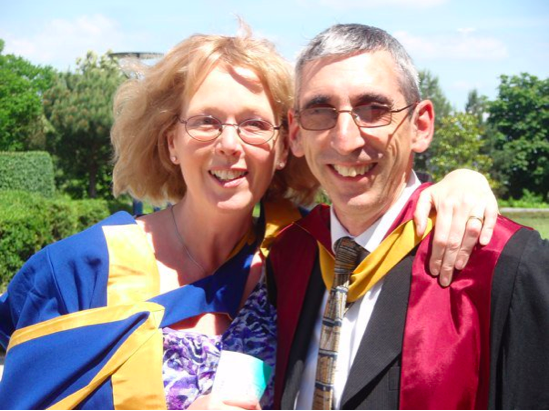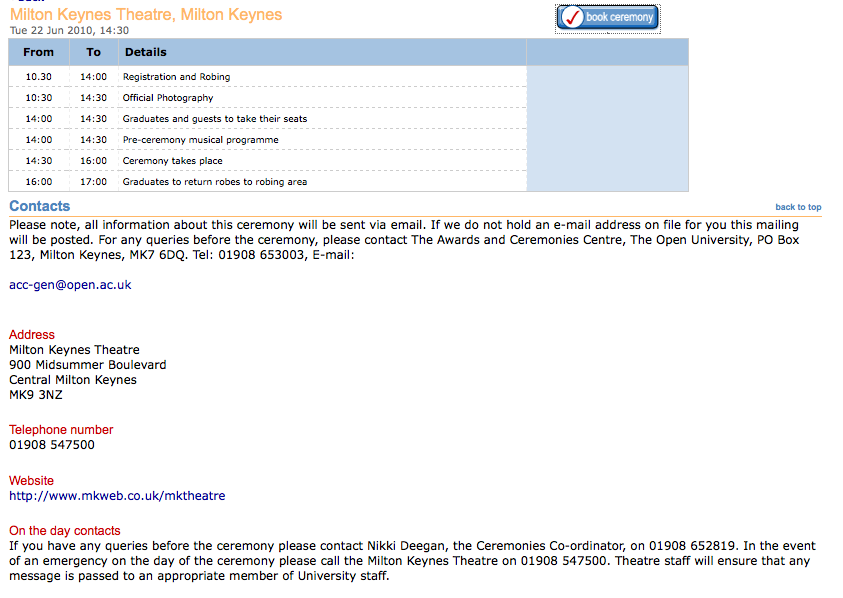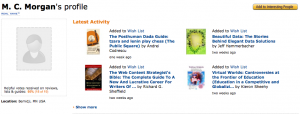 My husband and I at my graduation ceremony in Milton Keynes: 22 June 2010.
My husband and I at my graduation ceremony in Milton Keynes: 22 June 2010.
You can download my thesis ‘The Construction of Shared Knowledge through Asynchronous Dialogue’ at http://oro.open.ac.uk/19908/
Or just read the abstract…
This thesis investigates how groups of learners use asynchronous dialogue to build shared knowledge together over time. To do this, it takes a sociocultural approach, with a situated focus on learners’ social and temporal settings as well as on the tools they employ. It utilises concepts developed to support understanding of knowledge co-construction in face- to-face environments, particularly the social modes of thinking identified by Mercer and his colleagues (Mercer, 1995, 2000, 2002; Mercer & Littleton, 2007; Mercer & Wegerif, 1999) and the improvable objects described by Wells (1999).
Analysis shows that, over short periods of time, groups of learners construct shared vocabulary, history and understanding slowly through the use of a series of discursive devices including those identified here as ‘constructive synthesis’, the ‘proposal pattern’ and ‘powerful synthesis’. Over longer periods they may engage in ‘attached dialogue’, a form of asynchronous dialogue that is mediated by improvable objects. The development of these improvable objects involves learners engaging in exploratory dialogue that builds into progressive discourse, a coordinated form of co-reasoning in language. While doing this, they actively work to avoid unproductive interaction by consistently shifting responsibility from the individual to the group.
Previous studies have suggested that asynchronous dialogue may act to limit learners to cumulative exchanges (Littleton & Whitelock, 2005; Wegerif, 1998). The analysis over time presented here shows that asynchronous exchanges are enriched by the use of textual affordances that are not available in speech. In the case of attached dialogue, groups of learners are prompted to share knowledge, challenge ideas, justify opinions, evaluate evidence and consider options in a reasoned and equitable way. They do this more successfully when their co-construction of knowledge is not solely task-focused but also focuses on tool use and on the development of social knowledge about the group.

